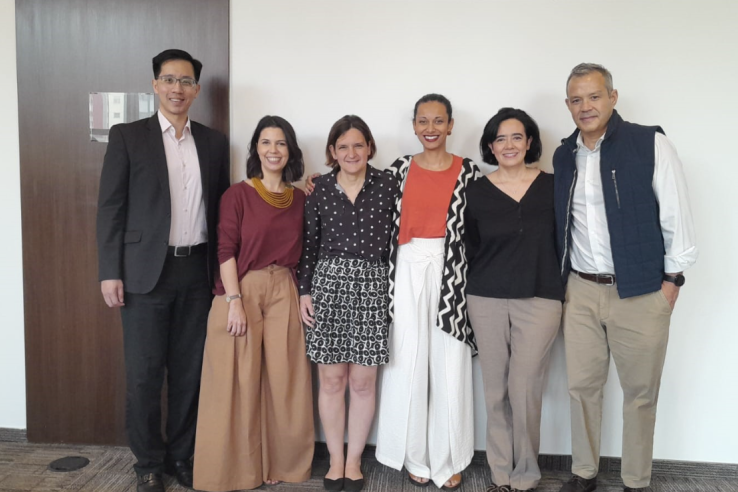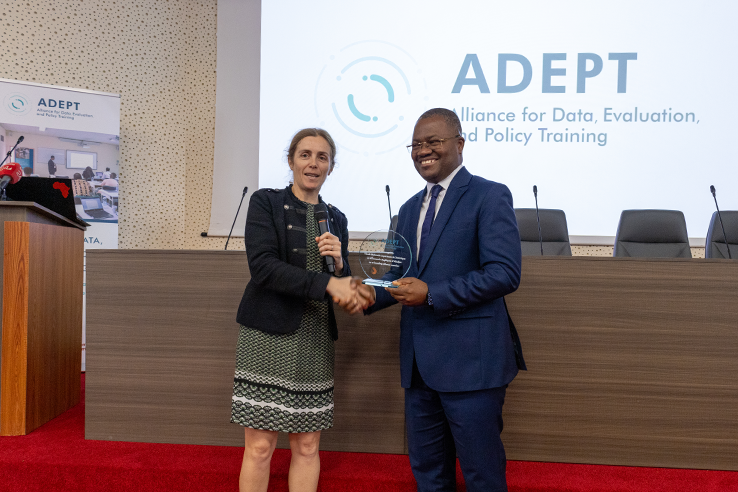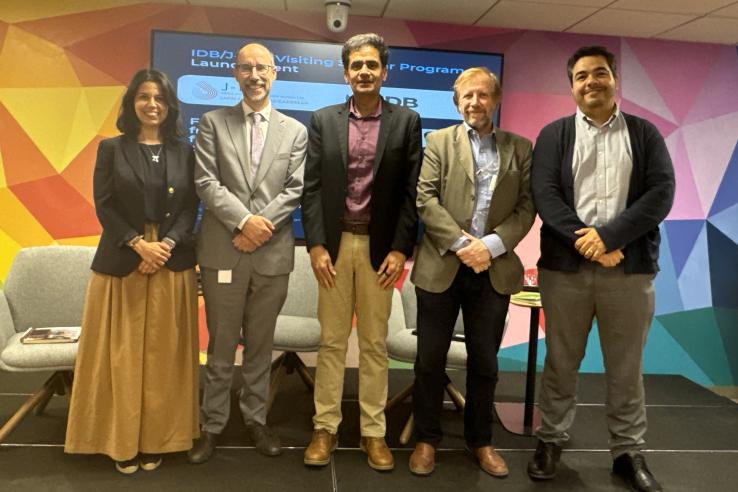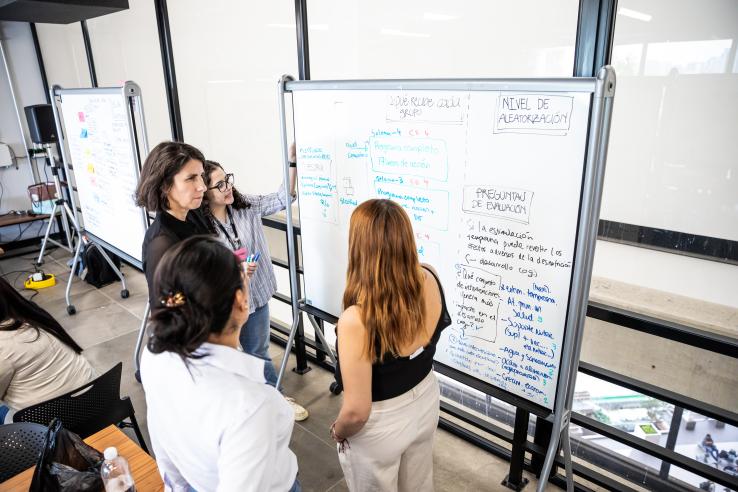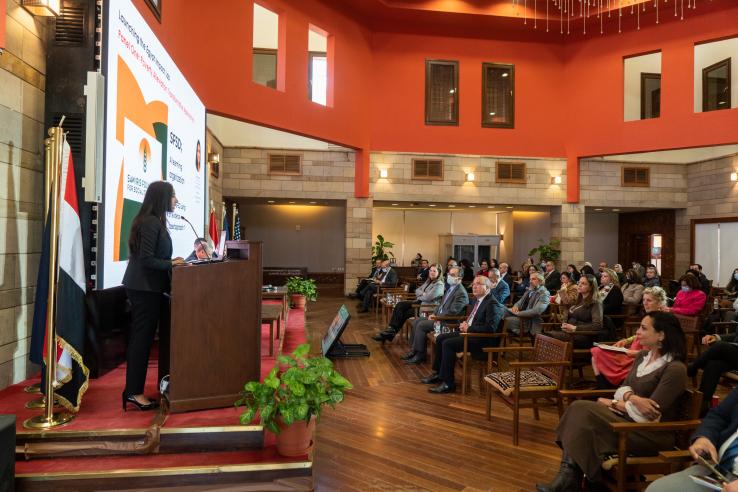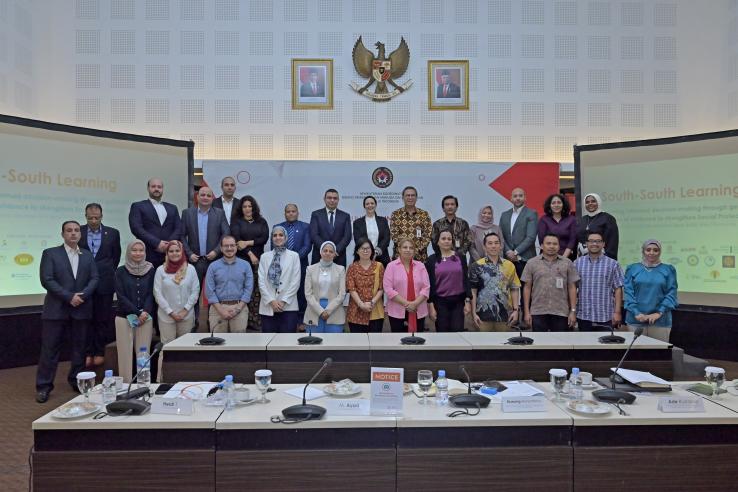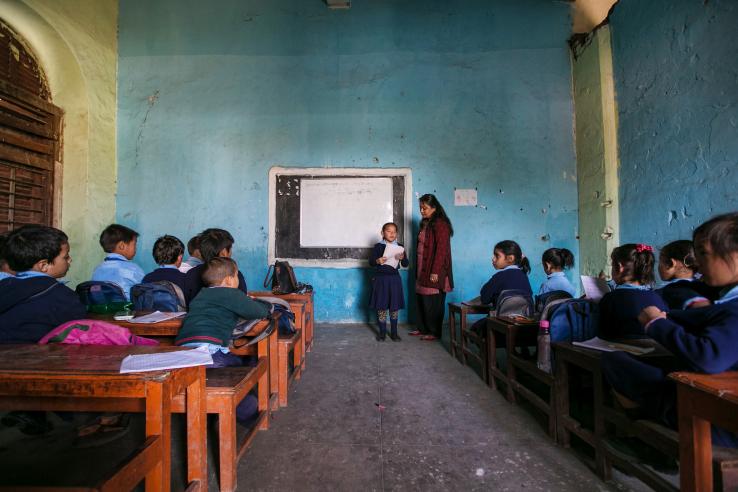Displaying 3046 - 3060 of 8336
Blog
The 2024 Sveriges Riksbank Prize in Economic Sciences in Memory of Alfred Nobel was awarded to J-PAL affiliates Daron Acemoglu and James Robinson, and co-recipient Simon Johnson, for their research on how institutions are formed and affect prosperity.
Blog
J-PAL North America convened a small group of researchers to ask how we might consider positionality within a quantitative research setting.
Update
J-PAL Updates
This year, J-PAL Latin America and the Caribbean (LAC) celebrates fifteen years of using evidence to inform policy and alleviate poverty in the regionThis year, J-PAL Latin America and the Caribbean (LAC) celebrates fifteen years of using evidence to inform policy and alleviate poverty in the region...
Update
J-PAL Updates
J-PAL North America's October newsletter features an updated version of our Health Care Delivery Initiative Evidence Wrap-Up, a new video on our work with housing choice vouchers, and a blog on positionality statements in economics research.
Blog
The Alliance for Data, Evaluation, and Policy Training (ADEPT) is a new effort led by J-PAL together with universities, training institutions, and other actors to empower researchers and decision-makers to use evidence to solve complex policy problems.
Policy insight
Credible skills signals help alleviate information barriers for both job seekers and firms, and often improve employment and earnings at a low cost. More and better information enables applicants to have a more effective job search, often resulting in higher-quality jobs and better employment...
Update
J-PAL Updates
The Inter-American Development Bank (IDB) and the Abdul Latif Jameel Poverty Action Lab Latin America and the Caribbean (J-PAL LAC) have officially launched a new Visiting Researcher Program, marking a new phase in the strategic collaboration between the two entities.
Blog
As we mark fifteen years of J-PAL’s Latin America and the Caribbean (LAC) office, we are recapping key milestones and sharing what we have learned in a new blog series. The series highlights lessons from working with those who make our mission a reality: our donors, implementing partners, J-PAL...
Event
The "Challenges and Chances in the Labor Market in Egypt and Beyond" conference is hosted by J-PAL Middle East and North Africa (MENA) and will be held at The American University in Cairo (AUC) on the 10th of November, 2024. It is organized in partnership with the Gender, Growth and Labour Markets...
Blog
Null results—finding no impact—can be particularly difficult for researchers, policymakers, and service providers to act on. In this blog post, we share three key considerations for successfully designing studies and acting on null results.
Event
J-PAL Co-Founder Abhijit Banerjee will give a public lecture at the Humboldt University of Berlin on Wednesday, June 26. This lecture has been organised by J-PAL Europe in partnership with HU Berlin and KfW.
Update
J-PAL Updates
A high-level Egyptian delegation of 15 representatives from various government entities participated in a learning exchange visit in Jakarta, Indonesia from 27-31 May 2024. The learning exchange was organized by the Egypt Impact Lab (EIL), with the aim of strengthening the knowledge ecosystem in...
Blog
We embarked on a documentary photography project to capture the people and activities behind a Finnish primary school intervention aimed at fostering social inclusion in schools. Our aim was to showcase the crucial role of visual storytelling in human-centered research and policymaking.
Resource
Basic page
J-PAL Europe fosters the generation of new rigorous evaluation in Europe by funding research projects designed to expand the evidence base in key thematic areas and by partnering with governments and organisations to institutionalise efforts to use rigorous evidence in the design of more effective...
Evaluation
Training teachers to improve teacher quality and student learning is a common strategy taken by policymakers. In Nepal, researchers conducted a randomized evaluation of a government teacher training program for math and science teachers to evaluate the impact on student learning in secondary schools.


